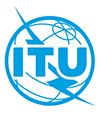
Abstract
ITU-T Study Group 11 (SG11) is responsible for 'signalling', producing international standards (ITU-T Recommendations) that define how telephone calls and other calls (such as data calls) are handled in the network.
SG11 is home to Signaling System 7 (SS7), the set of signalling protocols that underpins telephone calls in both fixed and mobile networks, without which telecom systems around the world would not interoperate. All telephone switching systems need signalling. It provides the means for monitoring the status of a line to see if it is busy or idle, the alerts that indicate the arrival of a call, and the addressing system that routes calls. Before SS7's implementation, not all nations were party to the standards agreements enabling international telephone calls. SS7's implementation thus paved the way for the efficient operation of international telecommunication networks.
SG11 is tasked with developing signalling requirements and protocols for Software-defined Networking (SDN), and this work aligns with the functional requirements and architectures developed by ITU-T Study Group 13 (Future networks). Considered a major shift in networking technology, SDN will give network operators the ability to establish and manage new virtualized resources and networks without deploying new hardware technologies. ICT market players see SDN and network virtualization as critical to countering the increases in network complexity, management and operational costs traditionally associated with the introduction of new services or technologies.
SG11 is also responsible for the development of test specifications. This work focuses on global interoperability testing and covers technical means, services, quality of service (QoS) and testing parameters. Activities encompass establishing benchmark testing procedures and investigating the testing of next-generation networks (NGN), ubiquitous sensor networks (USN) and emerging technologies such as the internet of things (IoT), distributed service network (DSN), home networking (HN), etc.
SG11 leads ITU’s work on conformance and interoperability (C&I) testing and is responsible for coordinating ITU’s C&I programme. Conformance with international standards is one of the core principles underlying the global interoperability of ICT networks and devices. The C&I programme was initiated at the request of ITU’s membership in light of the challenges faced by developing countries in improving interoperability. The programme rests on four central pillars: conformance assessment; interoperability events; human resource and capacity building; and assistance in the establishment of test facilities in developing countries. SG11 is also investigating whether the ITU C&I programme could play a role in battling counterfeit goods.
When meeting at ITU headquarters in Geneva, SG11 holds its meetings in collocation with SG13.
General Information
Working groups: https://www.itu.int/en/ITU-T/about/groups/Pages/sg11.aspx
ICT rolling plan topic: Cloud computing
SDO: ITU